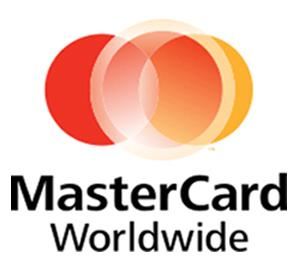MasterCard Confirms Appointment of Orange's Woo as Head of Mobile

MasterCard Worldwide today announced its expected appointment of Mung-Ki Woo, the head of NFC and mobile-money activities at France Telecom-Orange Group, as the card network’s new group executive for mobile.
Woo, who started today in the new post, will be responsible for developing and commercializing "go-to-market strategies to support mobile payments around the world," said MasterCard in a statement.
As NFC Times first reported Jan. 14, Woo will be based at MasterCard’s New York headquarters and will report directly to Ed McLaughlin, MasterCard’s chief emerging payments officer. There was no word yet on a replacement for Woo at Orange.
"I think he has a great view of the industry," McLaughlin told NFC Times today. "He’s learned everything from technology to regulatory aspects."
McLaughlin confirmed that MasterCard wanted Woo for both his experience heading Orange group’s NFC activities and his role leading the development of the Orange Money mobile-funds transfer service–both from a telco's perspective.
 As NFC Times earlier reported, Woo joined France Telecom in 2005, and headed one of the most active NFC programs of any mobile operator worldwide. He was involved in some of the first trials of NFC technology worldwide and directed plans for a rollout in France starting this year, following an abortive NFC launch in 2008.
As NFC Times earlier reported, Woo joined France Telecom in 2005, and headed one of the most active NFC programs of any mobile operator worldwide. He was involved in some of the first trials of NFC technology worldwide and directed plans for a rollout in France starting this year, following an abortive NFC launch in 2008.
He also led the development of the rollout of Orange Money, a mobile P2P funds-transfer and banking service targeting unbanked subscribers. The service has expanded to six African countries where Orange has branch operators. Orange Money has registered more than a million users since its launch in the Ivory Coast in December 2008. In all, Orange plans to expand the mobile-money service to 19 countries in Africa and the Middle East.
MasterCard is seeking to expand the mobile interface for its own MoneySend funds-transfer service to more countries. It also introduced MoneySend apps for the iPhone and some BlackBerry smartphones last year. It could not provide a breakout of results for those apps.
McLaughlin also declined to specify what Woo’s top priorities will be in the new post or how much of a threat MasterCard believes emerging-payments players will pose to its business at the point of sale.
These potential threats include the Isis joint venture formed last year by U.S. mobile carriers Verizon, AT&T and T-Mobile USA, as well as plans to move to physical world payments by eBay’s PayPal unit.
The telco joint venture plans to take on MasterCard and its larger rival Visa Inc. by launching a rollout of NFC-based mobile payment and related services next year, using the Discover Financial Services retail network. The small U.S. credit card arm of UK-based Barclays bank is slated to become the first issuer of NFC-payment applications under the new Isis brand.
U.S. banks are faced with these growing threats, along with figuring out how to take the initiative in introducing mobile payment, and many of them are looking to Visa and MasterCard for guidance and new products, say observers.
McLaughlin, however, declined to agree that such new payments players as Isis posed a threat to MasterCard’s business.
"It seems like a threat; I think it’s a tremendous opportunity," he contends. "It’s introducing mobility of the new device. That’s how we’re orienting this around the world. How do we best tailor this market and apply them (products) to the market."
McLaughlin also declined to discuss specifics about how strong MasterCard's focus on full NFC phones is versus bridge technologies. He did mention long-disclosed plans by Orange UK, credit card issuer Barclaycard and MasterCard to introduce payment on full NFC phones in the United Kingdom. That launch is expected this year.
And McLaughlin rejected suggestions in NFC Times’ earlier article that Woo’s appointment and the chain of command for the new post bypassing Geoff Iddison, group executive for innovative platforms for e-commerce and mobile, might represent a restructuring.
"This isn’t any sort of reorganization or change," he told NFC Times. "This is a position we set up quite a while ago."
McLaughlin said plans had called for the mobile and e-commerce functions of Iddison’s job to be split and MasterCard had been looking for a suitable candidate to take over the mobile part of the business.












